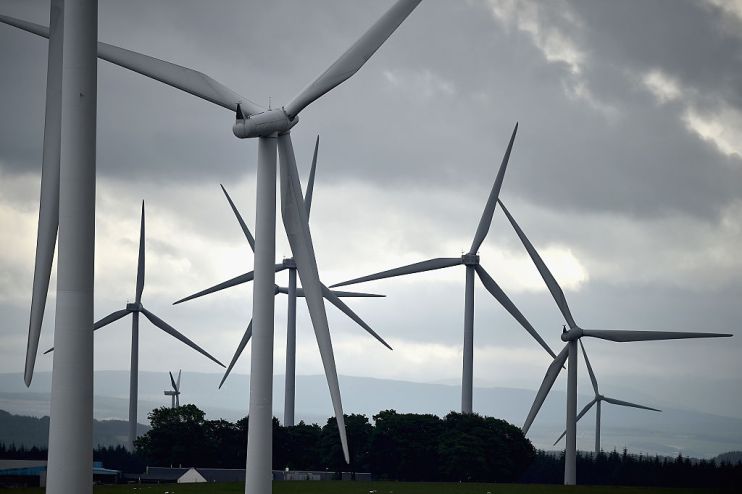We need a carbon border tax to get Britain to net zero

Later this year, the eyes of the world will be on the UK as it hosts COP26.
While delegates won’t convene at the UN’s annual climate change conference until mid-November, the government needs to consider now how it can showcase leadership on climate action.
The UK starts from a position of strength. In 2019, it became the first major economy to legislate for a net-zero target for greenhouse gas emissions, and can also boast the fastest rate of decarbonisation among G20 nations this century.
Much of that success has been down to cleaning up its energy sector. Britain now has a flourishing wind power industry, which generates a sizeable portion of its electricity needs. Indeed, owing partly to this, the grid went without coal-generated power for more than 18 continuous days between May and June last year.
Or so it would seem. In fact, a new paper from the Centre for Policy Studies explains how, even then, the UK was reliant on electricity produced by burning coal.
Undersea cables, known as interconnectors, provide Britain with power generated elsewhere. As ministers cannot trace exactly how each unit of imported electricity is produced, power from interconnectors are largely omitted from official statistics.
But modelling of energy flows during the so-called “coal-free fortnight” shows how the largest share of interconnector electricity would have come from the Netherlands, which produced 535.8 gigawatt hours of coal-fired power over that period. Alas, impressive as the run was, Britain still depended on coal — albeit indirectly — for energy.
This statistical sleight of hand is a serious problem. It allows the government to pat itself on the back, while hiding emissions off the balance sheet. If the UK is sincere about genuinely getting to net zero, it must think of how to square this circle. The fact that eight new interconnectors are due to come online by 2027 — supplying perhaps a fifth of our electricity — only underlines this.
The solution we propose is a carbon border tax.
Applied to electricity imports, the tax would be levied on the basis of the exporting state’s electricity generation mix and its respective carbon intensity. For a country like France, which generates much of its electricity from nuclear power, the tax would be relatively low. For one like the Netherlands, which won’t phase out coal until 2030, it would be higher.
The Centre for Policy Studies seldom advocates for higher taxes, but there is good reason to support this one.
First, British electricity is already taxed through the carbon price floor, which levies an £18.08 charge for every tonne of carbon dioxide created in the process of generating electricity. Introducing a carbon border tax would simply level the playing field between domestic and imported electricity.
Second, carbon taxes of all sorts are — rightly — hailed by economists as the easiest and most efficient way to tackle global warming. Climate change is, fundamentally, a market failure, in that more carbon dioxide is produced than is socially optimal. Even hard-nosed free-marketeers can be sympathetic to taxes in order to price in negative externalities. A carbon border tax could also prevent the ill-advised “solutions” of the left from gaining traction.
COP26 is a critical moment, both for the environment and for Britain to stand tall on the international stage. The government must be bold, and there are scarcely few better places to start than by introducing a carbon border tax on our electricity imports.
Main image credit: Getty